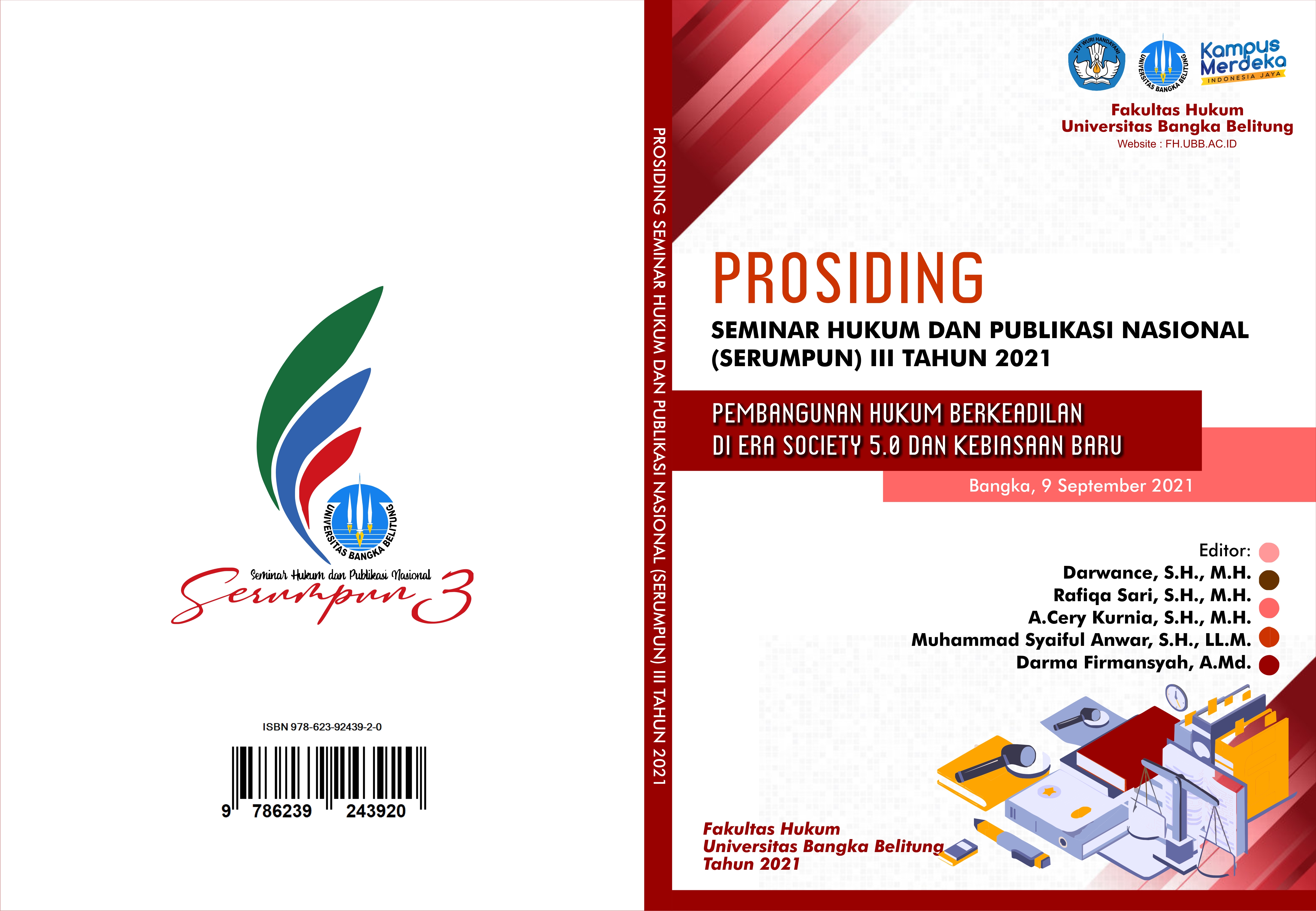MEMASUKAN LEMBAGA NEGARA INDEPENDEN KE DALAMKONSTITUSI
Abstrak
The post-1998 reform process had quite a significant impact on Indonesia's state structure, including the emergence of independent state institutions that were not bound by any branch of power at the time, such as the anti-Corruption Commission, theNational Human Rights Commission, the Ombudsman, and other independent commisions. The emergence of an independent state institution is based on the response
to the increasingly complex needs of the state and many functions of the state that cannot be resolved by existing state institutions, therefore this new state institution is
independent and must be free from any power intervention. However, the problem is that the basis for the regulation that becomes the existence of an independent institution is the Law, where the power to form laws in Indonesia rests with the President and the
House of Representatives. This makes independent state institutions that are still based on laws easily intervened, amended, even eliminated by the Parliament and the
President. Thailand includes independent state institutions in their countries in the constitution, so that independent state institutions are not easily intervened by other branches of power, because just like in Indonesia, independent state institutions are formed on the basis of the inability of existing branches of power to solve a problem. Therefore, Indonesia needs to include an independent state institution in the constitution with the criteria that the state institution be formed on the basis of the inability of other branches of power to solve a problem and be independent.



